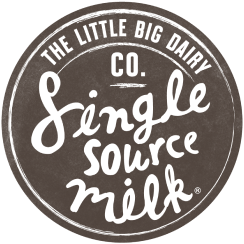Butter is a dairy product that is generally made from cows' milk, although milk from other animals can also be used. Whilst the butter will vary in taste and other characteristics as a result, its quality as a foodstuff will still be high.
Butter is made by churning the fat from milk until it separates from the rest of the milk and is then converted to solid form. It is a well-known source of vitamins and other compounds that are essential for good health. However, the content of these components and the benefits they provide will vary depending on what the cows that provide the milk eat. Their diet can make a significant difference, and that can be important to achieve maximum benefits.

Increased Benefits from Grass-Fed Butter
Many cows are fed exclusively on grain, while others only eat grass, and some have a mixture over the course of a year. Studies have shown that a diet of grass can produce significant benefits from the butter that is produced:
- Consumers report that butter produced from grass-fed cows has a more vibrant, golden colour resulting from the higher levels of beta carotene it contains. This is a compound that the body converts into vitamin A, which is beneficial for health and is an antioxidant that defends cells against potential damage. It is also reckoned to reduce chronic diseases such as type 2 diabetes, some types of cancer, and age-related macular degeneration. Grass-fed cows are estimated to have higher levels of beta carotene in their milk than those fed on grain, and so the benefits are greater.
- All butter contains calories, fat, and vitamins, primarily vitamins A and K, that are essential for human health, as well as other nutrients. Compared to grain-fed cows, those that eat exclusively or mainly grass are reckoned to produce butter that has 26% more omega-3 fatty acids, which have anti-inflammatory and other health benefits. Grass-fed butter also has a higher level of vitamin K2, which is important for bone and heart health, and up to 500% more conjugated linoleic acid (CLA) that has various health benefits.
- Humans can't produce vitamin A, which is essential for immune function, vision, reproduction, growth, and development. It has to be obtained through diet, and grass-fed butter is a useful source, providing 10% of the recommended daily intake from a single tablespoon (14 grams).
- Unsaturated, monounsaturated, and polyunsaturated fats are linked to maintaining a healthy heart. Grass-fed butter has a higher content of unsaturated fats than regular butter and so provides greater benefits.
Improved Health Through Eating Grass-Fed Butter
Whilst all butter will provide many of the vitamins and nutrients necessary to promote good health, grass-fed butter will supply them in greater amounts. It looks better, tastes better, and offers greater health benefits provided that, as with most things, it is consumed in moderation. It is easy to substitute grass-fed butter for the grain-fed variety, so the increased benefits impose no extra burdens. When choosing grass-fed butter, consider supporting Australian producers who prioritise sustainable farming practices, such as The Little Big Dairy Co, which produces Australian grass-fed butter from their ethically-raised, pasture-fed Holstein cows.






